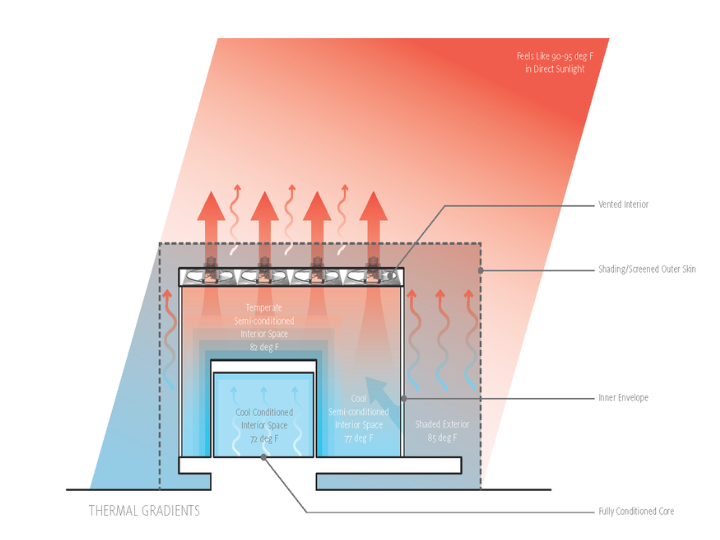UH Architecture and Engineering Team’s Thermodynamic House Set to Compete in Housing Event
A University of Houston team of architects, engineers and designers will put their creative minds to the test as part of a new competition to design innovative, unique and fully operational homes to lead the housing transformation and showcase their talents. The inaugural Gateway Decathlon will bring together twelve teams from universities around the world to compete in ten different contests to address pressing questions regarding the future of housing. In October 2025, the university teams will transport their housing units to St. Louis to compete side-by-side while showcasing their houses at the three-week event.

Associate Professor Jason Logan will lead the UH team, comprised of faculty members Mili Kyropoulou, Andrew Kudless, Matt Johnson and instructional lab manager Joaquin Tobar Martinez of the Gerald D. Hines College of Architecture and Design, along with Professor Driss Benhaddou of the Cullen College of Engineering’s Technology Division. The UH team proposes to design and build a thermodynamic house that will be a climate-responsive and adaptive smart home. The team’s house is meant to be adaptable to increasing temperatures due to climate change.
“We have all experienced, as a result of overcooling, needing a sweater in a building when it is over 90 degrees Fahrenheit outside,” said Logan. “Buildings are inherently thermodynamic, yet most structures are homogenously air conditioned based on a singular notion of comfort. Our proposal offers an alternative through both passive and active conditioning systems that leverage different temperatures within a building to improve environmental performance.”
An active conditioning system uses mechanical means, such as air conditioning or heating, to cool or heat the interior of a space. Passive conditioning is a non-mechanical, natural way of conditioning a space, such as an open window providing coolness.
The team’s thermodynamic house will also incorporate an extensive exterior shading system to reduce the sun’s impact on the façade. It will use photovoltaic and rainwater collection systems to provide power and non-potable water for the home.
Following completion of the competition, the UH group will disassemble the home in St. Louis and rebuild it as a public exhibition on the UH campus. The edifice will remain as a testing lab for the University for continued environmental and performance analysis.
Participating teams will each receive $100,000 as seed funding from the Gateway South Innovation District, which is where the culminating event will be held in downtown St. Louis. The UH group will also work with industry partners throughout the two-year process to cultivate in-kind donations and expertise contributing to the team’s overall design.
Gateway Decathlon aims to create a new marketplace for sustainable, off-site housing solutions in a time when the construction industry faces labor shortages, rising material costs and increasing demand for more sustainable housing.
Other teams in the competition include California Polytechnic State University; University of California at Riverside; a joint team from the University of Colorado Denver and Rice University; Kansas State University; University of Minnesota; joint teams from the Missouri University of Science and Technology, a joint team from New Jersey Institute of Technology and Dalian University of Technology; Virginia Tech; a joint team from Washington University in St. Louis and Tongji University; a joint team from Xi’an Jiaotong University and Hebei University of Architecture; and Zhejiang Normal University.

